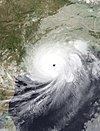User talk:QuitenBases
QuitenBases, you are invited to the Teahouse!
[edit]
|
Hi QuitenBases! Thanks for contributing to Wikipedia. We hope to see you there!
Delivered by HostBot on behalf of the Teahouse hosts 20:02, 9 September 2017 (UTC) |
Speedy deletion nomination of Skinseed
[edit]
If this is the first article that you have created, you may want to read the guide to writing your first article.
You may want to consider using the Article Wizard to help you create articles.
A tag has been placed on Skinseed requesting that it be speedily deleted from Wikipedia. This has been done under section A7 of the criteria for speedy deletion, because the article appears to be about web content, but it does not credibly indicate how or why the subject is important or significant: that is, why an article about that subject should be included in an encyclopedia. Under the criteria for speedy deletion, such articles may be deleted at any time. Please read more about what is generally accepted as notable.
If you think this page should not be deleted for this reason, you may contest the nomination by visiting the page and clicking the button labelled "Contest this speedy deletion". This will give you the opportunity to explain why you believe the page should not be deleted. However, be aware that once a page is tagged for speedy deletion, it may be removed without delay. Please do not remove the speedy deletion tag from the page yourself, but do not hesitate to add information in line with Wikipedia's policies and guidelines. If the page is deleted, and you wish to retrieve the deleted material for future reference or improvement, then please contact the deleting administrator. -- Dane talk 03:43, 17 September 2017 (UTC)
Speedy deletion nomination of Hurricane Talk
[edit]
If this is the first article that you have created, you may want to read the guide to writing your first article.
You may want to consider using the Article Wizard to help you create articles.
Hello, and welcome to Wikipedia. This is a notice that the page you created, Hurricane Talk, was tagged as a test page under section G2 of the criteria for speedy deletion and has been or soon may be deleted. Please use the sandbox for any other tests you want to do. Take a look at the welcome page if you would like to learn more about contributing to our encyclopedia.
If you think this page should not be deleted for this reason, you may contest the nomination by visiting the page and clicking the button labelled "Contest this speedy deletion". This will give you the opportunity to explain why you believe the page should not be deleted. However, be aware that once a page is tagged for speedy deletion, it may be removed without delay. Please do not remove the speedy deletion tag from the page yourself, but do not hesitate to add information in line with Wikipedia's policies and guidelines. If the page is deleted, and you wish to retrieve the deleted material for future reference or improvement, then please contact the deleting administrator, or if you have already done so, you can place a request here. ‡ Єl Cid of ᐺalencia ᐐT₳LKᐬ 14:42, 18 September 2017 (UTC)
Your edits
[edit]I assume that you mean to improve the 2017 Atlantic hurricane season article, but the material you chose to add was not appropriate for the lead, and the grammar and spacing was messed up. Master of Time (talk) 21:50, 18 September 2017 (UTC)
- It is also not atypical at all for the NHC to be wrong with intensity forecasts, which remain a very difficult thing to do. The errors that occurred during this season pale in comparison to those for Hurricane Patricia. It's not our job to critique them and our personal opinions don't count anyways.--Jasper Deng (talk) 22:11, 18 September 2017 (UTC)
Creating pages in mainspace
[edit]Hi there. When creating writings that don't actually have content like Please don't go hard on me, please don't put it in the article space. If you do, it actually creates an article, and it will be deleted or moved. Home Lander (talk) 22:10, 18 September 2017 (UTC)
Welcome!
[edit]
|
Home Lander (talk) 22:12, 18 September 2017 (UTC)
Regarding this edit: it's not our job to comment on the hurricane season, except as reported in reliable sources (my recent updates were based directly on NHC information).--Jasper Deng (talk) 01:03, 19 September 2017 (UTC)
- Adding on to this, please don't add redundant info already covered in the lede. Jdcomix (talk) 01:32, 26 September 2017 (UTC)
June 2019 WPTC Newsletter
[edit]|
Volume XIV, Issue 39, May 31, 2019  The Hurricane Herald is the arbitrarily periodical newsletter of WikiProject Tropical Cyclones. The newsletter aims to provide in summary the recent activities and developments of the WikiProject, in addition to global tropical cyclone activity. The Hurricane Herald has been running since its first edition ran on June 4, 2006; it has been almost thirteen years since that time. If you wish to receive or discontinue subscription to this newsletter, please visit the mailing list. This issue of The Hurricane Herald covers all project related events from April 14–May 31, 2019. This edition's editor and author is Hurricane Noah (talk · contribs). Please visit this page and bookmark any suggestions of interest to you. This will help improve the newsletter and other cyclone-related articles. Past editions can be viewed here. | |||||||||||||||||||||||
|
Article of the month, by Jason Rees History of tropical cyclone naming - The practice of using names to identify tropical cyclones goes back several centuries, with storms named after places, saints or things they hit before the formal start of naming in each basin. The credit for the first usage of personal names for weather systems is given to the Queensland Government Meteorologist Clement Wragge, who named tropical cyclones and anticyclones between 1887 and 1907. This system of naming fell into disuse for several years after Wragge retired, until it was revived in the latter part of World War II for the Western Pacific basin. Over the following decades, various naming schemes have been introduced for the world's oceans, including for parts of the Atlantic, Pacific and the Indian Ocean. The majority of these lists are compiled by the World Meteorological Organization's tropical cyclone committee for the region and include names from different cultures as well as languages. Over the years there has been controversy over the names used at various times, with names being dropped for religious and political reasons. For example, female names were exclusively used in the basins at various times between 1945 - 2000 and were the subject of several protests. The names of significant tropical cyclones in the North Atlantic Ocean, Pacific Ocean and Australian region are retired from the naming lists and replaced with another name, at meetings of the various tropical cyclone committees. Storm of the month and other tropical activity  Cyclone Fani was an extremely severe cyclonic storm that made landfall in Odisha, India on May 3. The storm achieved peak intensity as a near Category 5-equivalent cyclone with 3-minute sustained winds of 215 km/h (130 mph), 1-minute sustained winds of 250 km/h (155 mph), and a minimum central pressure of 937 hPa (mbar). Fani caused over $1.8 billion (2019 USD) in damage in India and Bangladesh and killed at least 89 people.
New WikiProject Members since the last newsletter in April 2019 More information can be found here. This list lists members who have joined/rejoined the WikiProject since the release of the last issue in April 2019. Sorted chronologically. Struckout users denote users who have left or have been banned. To our new members: welcome to the project, and happy editing! Feel free to check the to-do list at the bottom right of the newsletter for things that you might want to work on. To our veteran members: thank you for your edits and your tireless contributions! Editorial for welcoming new users, by Hurricanehink Every year, editors new and old help maintain the new season of season articles. The older users are likely used to the standards of the project, such as how to Wikilink and reference properly. Newer users might make mistakes, and they might make them over and over again if they don't know better. If anyone (who happens to read this) comes across a new user, please don't bite, because with enough pushback, they'll decide that this group of editors is too mean, and unfun. This is all a volunteer project; no one can force anyone to do anything. We're all on here because of our love of knowledge and tropical cyclones. If you find someone new, consider using the official WPTC welcome template - Wikipedia:WikiProject Tropical cyclones/Welcome. I also encourage that if you know any tropical cyclone researchers, please speak up and try recruiting them to edit. Veteran editors can't keep editing forever. Life gets busy, and the real world beckons! Member of the month (edition) – Yellow Evan Yellow Evan has been involved with WPTC since 2008. Since the last newsletter, Yellow Evan has taken 5 typhoon articles to good article status as well as created 2 more. Overall, he has created and/or significantly contributed to more than 130 good articles. Your work in the Western Pacific Basin is invaluable... Thank you for your contributions! Latest WikiProject Alerts The following are the latest article developments as updated by AAlertBot, as of the publishing of this issue. Due to the bot workings, some of these updates may seem out of place; nonetheless, they are included here. Redirects for discussion
Featured list candidates
Good article nominees
Featured list removal candidates
Requested moves
Articles to be merged
Articles for creation
Updated daily by AAlertBot — Discuss? / Report bug? / Request feature?
Click to watch (Subscribe via This section lists content that have become featured, articles and lists, since the past newsletter in mid-April 2019.
WikiProject Tropical Cyclones: News & Developments
New articles since the last newsletter include:
New GA's include:
Current assessment table Assessments valid as of this printing. Depending on when you may be viewing this newsletter, the table may be outdated. See here for the latest, most up to date statistics.
From the Main Page From the Main Page documents WikiProject related materials that have appeared on the main page from April 14–May 31, 2019 in chronological order. WikiProject To-Do Project Goals & Progress The following is the current progress on the three milestone goals set by the WikiProject as of this publishing. They can be found, updated, at the main WikiProject page.
|


